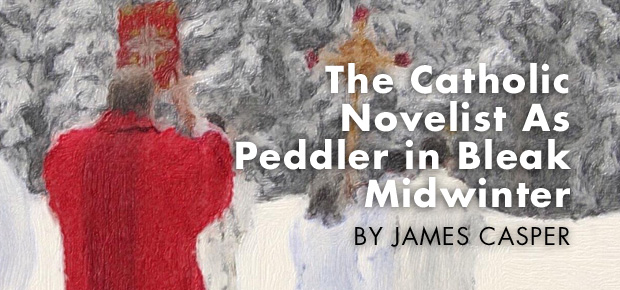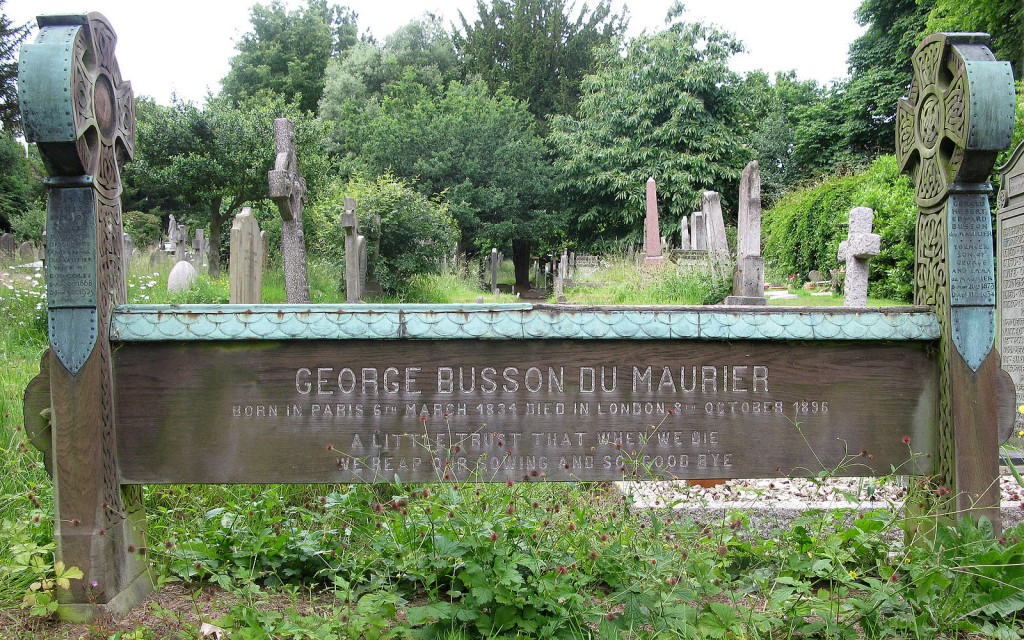
A cold coming we had of it,
Just the worst time of the year
For a journey, and such a long journey:
The ways deep and the weather sharp,
The very dead of winter.
—T. S. Eliot, Journey of the Magi
Outside the church after Mass, beyond perfunctory handshakes, breaths can be seen in the chill Advent air. Wintry Minnesota weather becomes sequel to empty pews and creaky heating systems. To love and serve the Lord distorts into straight-lipped disputes in café and tavern, wherever people gather and where people mumble to themselves.
This is a far cry from my boyhood hometown where Protestant and Catholic kids would throw snowballs at each other from church lawns across the street. Their parents gathered by parked cars teasing each other about who had slept through the longer sermon. A kind of ecumenism flourished long before Vatican II; it was in small town America before Pope John arrived there.
For today’s writer of novels with Catholic content, refuge may be found in a distant past and a faraway time and place, but almost nowhere close to home. Anti-Catholicism lurking in byways and ever present, matters less than Catholic against Catholic fire fights in an internal ‘holy war’ complicated by Church politics, Church scandals, and laity side-taking. At home there is nowhere to hide, and little in the way of middle ground.
Woe to any author standing between, attempting to douse the flames on his book’s cover.
This holds enormous implications for writers of Catholic novels in a clogged book market seeming to have many more books than readers. Only Shakespeare is said to have succeeded in pleasing almost everyone, from rabble on the Globe Theater floor to the privileged aristocrats in the galleries in all seasons of climate and spirited soul-searching.
Shakespeare was enormously successful in complex, deeply divided times, much of it having to do with religion. Fellow dramatic genius, Kit Marlowe is a better example of what can happen—possibly assassinated amid webs of intrigue, stabbed in the eye in a tavern brawl, so the story goes.
Standing outside after Mass, I glance at my wife for reassurance somewhere between presumption and despair. Was I an idiot to write this novel in times like these? Is my Everywhere in Chains Macbeth’s tale told by an idiot signifying nothing? Have we come here to explain the inexplicable? Her hand in mine seems to say, James, it is not a season for conclusions. She is braver than I will ever be. We both shiver: winter this year seems especially cold.
In a distant wintry season of distant breaths in frozen air, a high school English teacher informed my class that she never read a novel that had been published less than fifty years ago. We cannot stand here that long, withstanding the test of time. I think my teacher was onto something, yet if every reader took that approach, publishers would quit publishing novels, and aspiring novelists would starve.
Perhaps, though, my teacher perceived that in the flotsam and jetsam of time, differences of political opinion, stylistic demands, and heated disputes—even religious ones—have a way of leveling out, becoming unimportant. At that moment, sheer artistry matters most. Only then can we begin to say that maybe a writer has written for the ages, not merely for today or for tomorrow, but for all time.
Here lies the wisdom of being a Rip Van Winkle, both as reader and as writer. Rip dozed through the years, despite screaming bestsellers beneath a universe of five stars.
When he awakens, the hoopla—much of it—is over. He missed the razzmatazz. He missed the games of ‘Monkey in the Middle’. He napped while writers of ordinary talent danced beneath a gilded ball always beyond fingertips. Blind to their own limits, they tried to please everyone. In the end, no one was happy, and everyone forgot why they were there in the first place.
Where does this leave a writer of Catholic novels in today’s below-zero weather, in an era of Church climate change, in a divided and fragmented Catholic world? There is no habitable middle any more. This is more than a matter for wool socks and snow shovels.
Doing what I tried in a novel published a couple of years ago seemed to me to be an option. I attempted to fashion in words a hologram or a kaleidoscope in which with slight shifts of perspective or a twist of the wrist, lots of patterns could be seen. I thought it okay not to adopt a single position, monkey in the middle, in other words. I thought balance was as important as a central character’s mobiles and weather vanes.
While I slept through what seemed overnight, Catholic Minnesota had become a world of you are with me or against me partisans. The home front was not about Christ, but about political positioning in an arena of the sort he abjured. It was Barabbas and the mob. Snowballs and youthful pranks had become nostalgia.
Holograms and kaleidoscopes are mere toys and objects for detached consideration, a bit like the View-Master kids turned to for visions of distant worlds, in a time before smartphones, computer tablets, and Instagram.
Hold it up to a bright light to see more…
Here in northern Minnesota where last night the temperature was minus twenty-seven degrees, hologram and kaleidoscopes froze in place. My wife and I awoke in a writer’s world, not unlike Christina Rossetti’s In the Bleak Midwinter, by coincidence sung in neighborhood churches on Christmas Eve beneath a full moon:
In the bleak midwinter, frosty wind made moan,
Earth stood hard as iron, water like a stone;
Snow had fallen, snow on snow, snow on snow,
In the bleak midwinter, long ago…
What can I give Him, poor as I am?
If I were a shepherd, I would bring a lamb;
If I were a Wise Man, I would do my part;
Yet what I can I give Him: give my heart.
After several years of wandering, we had come home to where Everywhere in Chains had happened. It became the very week that our brave Penelope and her faithful Aunt Charlotte shepherded her imprisoned, dying father, home to be blessed by Father Luke Ulrich, a worthy priest in an age when the word no longer seemed redundant.
A quick-eyed book marketer might have seen that such a novel would not make a good Christmas gift: too heavy-eyed, too sad, too problematic, and too close to home with its deeply divided Catholic parish, its worthy priests and bad, and of all things its imprisoned man abused as a child, home to die in the arms of his loved ones, a Christ-figure released at last.
Surely this is not the stuff of the broken world Christ came to mend…
God rest ye, merry gentlemen. Let nothing you dismay.
By sheer, almost diabolical coincidence, the Diocese of Duluth declared bankruptcy a few weeks after we arrived in Minnesota. Months before that had come the same for the Archdiocese of St. Paul. Disillusionment had become bleak midwinter: Catholic railed against Catholic; families split over who went to church and who went to tavern, not of as old for mirth, but from a sense of loss. Heads bowed over rosaries, now bowed over glasses of beer.
Step into truly below-zero weather and take a deep breath. It can be like that.
We felt it, the cold grip of something deep in our lungs: righteousness on one hand; lawyer opportunism on the other; metaphorical drawing-and-quarterings, beheadings, and hangings; disillusionment. The laity? Among so much written, who pities the laity? Always the last ones mentioned, if at all…always expected to bow.
We search a dispersing, dwindling crowd. We could use an advocate, this amateur writer and his wife, pedaling books—giving them away actually—till the stack we bought from Ignatius Press a year or so ago for three bucks or less each, finally gives out.
Now we understand what it is like to be the Mormon or the Jehovah’s Witness at the door. And we too are scared. We even found a free copy in a garbage bin at the edge of a church parking lot, nestling among last week’s Church bulletins, among voices.
Why are you here? Whom do you seek? What do you want?
This is not meant to be self-pitying or ironic. Actually it can turn out to be as bracing as winter air, this life as a Catholic wearing the rumpled pants of roaming evangelicals. We dare to think that maybe this is how some of Christ’s disciples went around years ago in their own bleak midwinters. Maybe this is how a lot of Catholics feel today, the ones not flattering heresy but fleeing Sodom and Gomorrah.
We will never be saints. We will never be geniuses. We shake snow instead of sand from our shoes as we leave frozen villages behind; roaming turns out to be chasing a hologram and a kaleidoscope frozen in time…
Another evening nearing New Years, while sitting in our family cabin overlooking Sibley Lake, fire flickers against a frigid downdraft. Our bulldog Henry snoozes between us. Our thoughts turn to a memorial stone in a Hampstead, London churchyard at the foot of a steep hill.
The grave is that of George Busson du Maurier, grandfather of the novelist Daphne du Maurier, and himself author of a novel regarded as the first bestseller of the modern age. We had walked by it many times, going and coming from hilltop St. Mary’s.
Years before this frozen Christmas, I stood near the elder du Maurier’s grave in the tepid morning shadows of another British day. I glanced at his epitaph while I finished the last few pages of his Trilby. I was reading aloud with an unwritten novel in mind called At Their Stations Keeping. Busy London had settled into a tentative, almost reverential hush, a moment of silence in the midst of hubbub. A pair of magpies hopped about. Maybe I would call it Everywhere In Chains; some days it felt like that, even then, for both of us.
In both mind and hand and on my lips unspoken lingered a goodbye of the sort one feels when approaching a beginning and the end of an exceptional something. A novelist rested almost at my feet beneath these words:
A little trust that when we die, we reap our sowing and so—goodbye.
###

Header image: “Deacon Charles Rohrbacher carries the book of the Gospels at the beginning of the procession from St. Peter’s Hall into St. Paul the Apostle church for the opening mass of the Diocese of Juneau Synod 2013.” From the Southeast Alaska Catholic Online.






Leave a Reply